There are many potential steps involved in researching your genealogy, especially if you’re starting from scratch. Before you do anything else, it’s of course, best to start with your living family members – gather information from your oral history, and search through their old records and photographs. You may be surprised at how much you can learn this way!
But you might not get all the answers you’re looking for, where do you go next?
Related Info – What tribe am I from?
Especially for those of us with Indian ancestry, it can be tough tracking down information through written records. The census only dates back so far, and some archives are simply not as well-maintained as others. Thankfully, though, there are other routes you can take for learning about your genealogy, such as DNA testing.
DNA Testing for Ancestry Research
By testing your DNA – the 23 pairs of chromosomes you received from your biological parents – researchers can find out information about your personal ancestry. After taking a non-invasive sample of your DNA, such as from a cheek swab, the DNA testing organization will compare your results with the results of others from the same lineage. The comparisons are made with DNA samples from both current and historical individuals.
What You Can Learn from DNA Testing
Genetic markers are examined during DNA testing, which will tell the tester how likely you are to have specific characteristics. They can also help point you in the direction of your paternal line origins, and potentially even show your paternal ancestors’ migration routes. For maternal ancestry, the same can be done by examining mitochondrial markers.
There are over 200 historical human populations, and through genetic testing, you can find out which you are most genetically similar too – meaning which you are most likely to be descended from. Many people use DNA testing to determine what percentage of their ancestry came from Europe or Africa, for example.
For Native Americans or those with Indian ancestry, it can be a little more difficult to pin down results. Ancestry.com, one of the most popular and well-known genealogy sites, offers DNA testing services; while you can find out if you are partially Native American through their services, they cannot currently provide your specific tribal affiliation. This review of their DNA testing services will give you a good idea of what it entails and what to expect.
What You Won’t Get from DNA Testing
There are other consumer genetics testing services. You may have heard of some running into trouble with the FDA previously – that’s because consumers were using their services as diagnostic of potential health issues. It’s important to note that no genetic testing service will provide you with a diagnosis of a condition.
You will also not find out about tribal affiliation. You can find out what percentage of your genetic makeup is Native American, but you won't know if it is from Cherokee, Sioux or other. In addition, DNA testing is not a substitute for documentation needed for tribal enrollment.
Find New Connections Through DNA Testing
If you decide that you wish to go through with DNA testing to learn more about your ancestry, it’s important to remember that you won’t learn everything. Genetics test results can’t be exact, but they instead simply provide a prediction for your ethnic makeup. However, with more and more individuals getting DNA testing, and therefore broadening the database of DNA samples to compare, we can bet that genetic testing research is becoming more precise every day!
Ancestry.com is the world’s largest internet-based family history resource, and that combined with their DNA testing services is very promising for leading you in the direction of understanding your heritage. Thanks to their list of DNA matches, they can potentially help you identify unknown familial relationships. Currently, over three million individuals have taken the Ancestry.com DNA test.
How DNA Testing Works
DNA testing can be pricey, with at-home kits starting from at least $99. However, if you are serious and curious about your ancestry, it may just be a worthwhile investment.
Consumer genetic testing kits are very simple. Generally, the organization will ship a kit to your home. All you have to do is follow the instructions – generally, fill up a testing tube with a sample of your saliva – and send the kit back in the mail. It will usually take several weeks or a few months to receive your results back; Ancestry.com sends them back to you via email.
Ultimately, the decision to undergo DNA testing in order to find out more about where you come from is up to you. First, we do recommend building out your family tree and going from there. The DNA tests will not give you any certain or specific results, but they may give you a good idea of your heritage or place of origin. For many of us, simply knowing that information is enough.
Last Updated on June 7, 2023 by Paul G
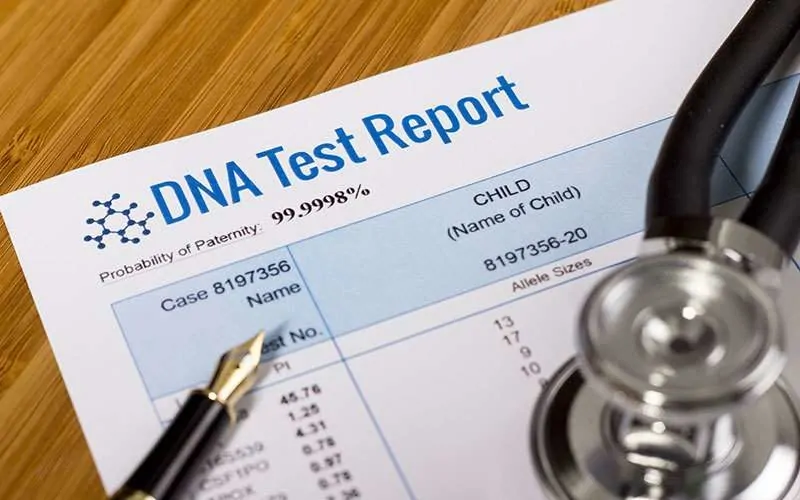
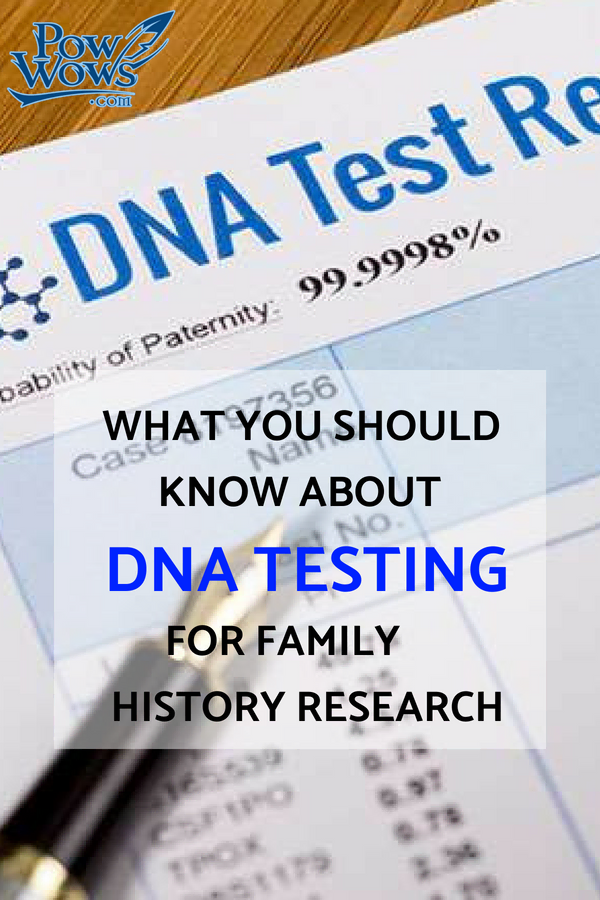
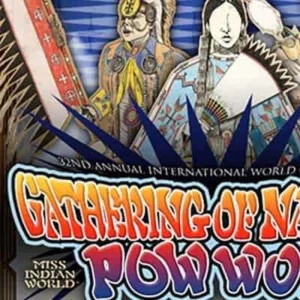
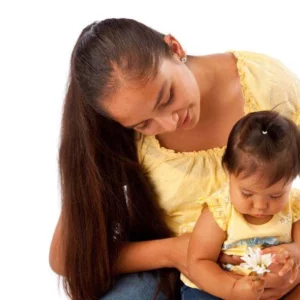
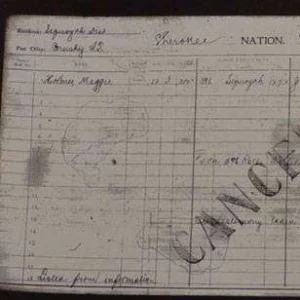
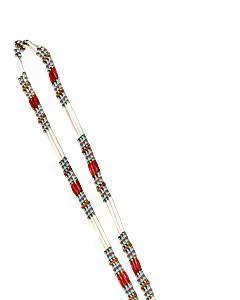
Christopher Medynski
says:I’ve got a dead end as it were I did the ancestry DNA test and I’m 18% from the New Mexico Colorado area my biological mother didn’t put the father name down. I was adopted as a baby and was told by my parent’s that I was adopted at five years old. I always have never felt like I had a culture because of never knowing my ancestors.
alpha1
says:Is it worth taking an ancestry test if you are from an African background? Do these companies have enough data from African populations compared to say Europe or North America?
Alpha
says:I’ve heard that it’s possible for two siblings to get differing results from ancestry tests. Does anyone have any experience with this?
Melinda
says:It is totally possible for two siblings to get differing results. One reason may be that they only share one parent. But even when both parents are the same, you can still have very different results, depending on which genes mate with which genes. In my own family, for example, my mother had dark eyes and black hair. My younger sister has brown hair and brown eyes. I have blond hair and blue eyes. Blues eyes are recessive. My dad had blue eyes and blond hair – at least, blond as a kid. My mother carried a recessive gene for blue eyes – but because dark is dominant, her eyes were dark. My sister’s eyes were dark, because mom’s dark eye dominant gene and dad’s blue eye recessive gene matched – and dark eyes prevailed. I have blue eyes, tho, because mom also carried a blue recessive gene, and on me, dad’s blue eyes and mom’s blue eye recessive gene matched up. This is also why sometimes two parents who both have dark eyes can have a blue eyed child. I’ve also been told, although I haven’t done the research to find out for sure, that because of the way genes match up, you can be of direct Native American descent, and not have it show up on a DNA test. The reasoning goes, because of the way genes match, if two people of mixed descent were to marry, their child would have a 25% chance of being full blooded one race, 50% chance of being mixed descent, and 25% chance of being full blooded the other race. At least, so I’ve been told. Like I said, I haven’t done the research. But my grandmother grew up believing her grandmother was Native American. That’s what she told both my dad and me. And dad said that his great-grandma looked Native American. But when we did DNA tests, nothing showed up. But someone told us that didn’t mean she wasn’t Native American, it just meant those genes did not get passed down. I’m still doing research, trying to find out for sure if any of her family were on any of the rolls. I’ve found some names, but all I have are names, I don’t have any other info, so I don’t know if they are “my family” names or not.
Sweetpea522
says:Yes I do. My sister and I both had slightly varying results. Most of the ethnic regions that came up, we both had but to varying levels. Some slightly and a couple of them showed up on hers but not on mine and vice versa. We always knew somehow our Mom was mixed with Native American but she always said she was Spanish (our ancestors were part of the original Conquistadores who came from Spain to New Mexico). Along the way and over the years we were intermixed with Zuni and a few of my other grandparents were from various Pueblo’s throughout the area they lived in New Mexico. Because my Mom has passed we had limited ancestral history to go by and decided to Take a DNA test. Our history and genealogy was researched and well preserved by the state of New Mexico, their State genealogy dept and other similar groups within the state. I was able to get a pretty thorough background for Most of my ancestry but there are still holes and gaps where the work is still being done and seems to go blank. But everything that showed up on the ethnicities is in my genealogical records with the state of New Mexico and accurately matched up. My mother married my Dad who is an Anglo and our tests showed about 15-20% Native blood and many of our cousins are anywhere from 10%-70% Native as well. You can’t always tell by looking at people what runs through their blood but we always felt it in our hearts and souls!
Consuelo Smith
says:I did my DNA I’m 50% Native of America do not know what to do next or were can I go to sine
A.B.L
says:What happens if I ordered an ancestry test from 2 different companies and I got conflicting results from both? What should I do next?
Paul G
says:Do a family tree. Dig into the records.
Candance McGee
says:A-you should ask for your money back, and then
B- ask them to pay YOU!
It is obvious these private companies “providing” private persons their family history are not doing anything of the sort.
At this juncture, D23, Ancestry. Com, and other companies like them are literally harvesting YOUR data, and charging YOU to provide it to them. It’s a great scam.
Getting two, completely different results from two different companies certainly indicates something isn’t kosher. It sounds like you gave them more value than they gave you, and they owe you something. I would present both companies with your evidence and demand an account.
Karan Derry
says:My adopted daughter is 25% Apache Indian, how can I find out if she is entitled to any college money?
Gina S Dickens
says:I did 23 an me ancestry testing. Since I am female it only gave me my Mothers side mostly. The native part is on my Fathers side. I have to get my male cousin to take the DNA test.
Millie Hue
says:Thanks for helping me understand that DNA testing will be able to trace our ancestors and what percentage we have regarding our race. That really made me interested, so I might try this out especially that my grandmother looks really different. I have a feeling that we might have a little bit of Spanish blood in our genes.
Vic
says:I had a DNA test, not to find out if I had any Native American blood but I do have .5 % .4% Native American and .1% East Asian & Native American. My purpose is to search my roots, do I have enough blood in me to continue with my quest?
Larry Jones
says:I was advised by the Ancestry technical staff that their lab test protocol did not identify any American Indian heritage? Both my wife and I believe we have such a heritage but the results were only western Europe. Any thoughts.
Debra A Crosby
says:I had the exact same result and reply when I received my results showing that I didn’t have any Native American ancestry. Family records and stories tell otherwise and I have always been very proud of my ancestry. When I received my results it was like the world came crashing down around me.
I have never known of anyone in my family being from Spain or Portugal, but there was more of a percentage from the Iberian peninsula than from Ireland – which I was told that some of my father’s ancestors were from.
Laurie Bedell
says:My husband did a DNA test with Ancestry and came back 66% Native American. His family roots have been traced back to Michoacán in Mexico, and most recently, found some ancestors from Spain. I know my history pretty good, so I can figure out how they ended up in central Texas. My question is: Apache or Comanche? Will a Mexican Tribal Map be a good guide for us to follow? Also, how does he join his fellow warriors tribe? We live in Normangee Texas, and I know the Caddo Indians lived and hunted here during the hunting season, but we have not been able to locate a source to answer our questions.
Hector Lopez Alvarez
says:I’m from Puerto Rico with 13 % native american. The Taino Indian from the Caribbeans. Can I register as a native American.
Loretta Vigil
says:My Maternal Grandfather said his Mother’s female line were from the Pueblos (we’re from northern New Mexico, a village called Cerro north of Taos) and he said my Grandmother’s female line were from the “Geronimos”. I had my DNA tested and it came back Haplogroup A1g2, Athabaskan, Native America, specifically Navajo and White Mountain Apache. Considering as a woman, I only inherit my mitochondrial DNA from my Mother and her Mother, her Mother, etc., I’d say my Grandfather knew what he was talking about. I’m assuming the only way the White Mountain Apache people showed up in my DNA is because people from that tribe must have contributed DNA. The Athabaskan group refers specially to the Navajo and Apache and are connected by language similarities. My Native ancestors most likely were captives and I have only been able to trace my female line to Maria Martin and her husband Antonio Cordova, both born about 1720 at San Juan de los Caballeros (Ohkay Owingeh). The following 3 generations were all born there until their descendants moved to Abiquiu around 1750. I’m not concerned or interested in trying to become a member of a tribe but I am very interested in restoring the history of my ancestors and honoring their journey…they were survivors without whom I wouldn’t be here.
Gabriela Zamora
says:I too had no idea. Both my parents are from Mexico. So, I always thought I was Mexican. I have drawings of Native American Indians from when I was a child that I drew. I fell in love with New Mexico that I told myself, I want to retire here. My home has Native American decor. I had no idea why I had this love until I took I received my dna results from ancestry. I’m 44% Native American! Now it all makes sense. But I have no idea what tribe. My grandmother died giving birth to my mother. My grandfather couldn’t take care of my mother as an infant and she was raised by a maternal aunt. Where do I start?
Silvia
says:Mexicans are Native American, NA are from north, central and South America. Some of us are related to southern American tribes. Don’t think of borders, native Americans travelled up and down north and South America. When my mother and I visited a zuni Pueblo, people we met said she looked Zuni. An older woman said, yes you are our cousin, years ago our tribe used to steal children from the south, Mexico, and vis versa. Mexico has a lot of tribes. Zuni are distant relatives of Huicholes. You can start and find out where in Mexico you came from, and how long they were in that place, then look at Mexican tribal maps. You may not find exactly but you can get an idea. If you are haplogroup B2 you come from very ancient native roots from Mexico. If you are A or C you are most likely from North American tribes. In Cancun where they have the ballcourt, there is a small bldg that shows the winners of games drawn on the walls. You see Native American headdresses shown on some, others you see tribes from Brazil. I saw it with my own eyes. The America’s are rich with Native history, research in line, because ours is not European history, we have our own.
Mac
says:Be aware that this testing company and 123&Me also send your DNA and results to government agencies and the police, so if you want privacy DO NOT use those services. They don’t even tell you that they’re doing it, they make more $$$$ off of you than the simple price if the test. Not right!
D
says:Yup! If you want to have your DNA done without them using ANY of it for biotech or security things, use Family Tree DNA. They don’t sell it but I think the other two do, including Ancestry.Com and 23&Me.
Cora
says:My child’s biological father was adopted. He knows he is partially Native American but not a clue to how much or which tribe. My child would like to find out for his own information. How do we go about doing that if after DNA testing there is confirmation of Native American ancestry? We have no information about his father’s family at all, not even where they’re from.
Alan Riley
says:Wow, good luck!! I am “luckier”, maybe! I was adopted and still searching “roots”; I’ve known birth mothers tribe, as adopted parents knew some of my history. Any idea if his parents have any knowledge of where his origins are? Or perhaps of existence of 1st/original birth certificate? That’s what I had been going on- have narrrowd things down to a village of birth mother and also of birth father(very vague), but, I believe, only two people knew of my existence -bio mother and perhaps her mother- now both deceased- positive on my birth mother-guessing on her mother. So, again, good luck-a little information can be good, or lead to more dead-ends!
Maria E Daniels
says:For as long as I can remember I have always been approached and asked what tribe I was from or what nation, or if I am going to powwow, my answer is always the same, I’m not Native American I am Mexican.
The DNA company 23 and me asked if I would participate in a genetic study for lupus, I did not know they were going to do my entire genetic history, I was shocked to find out that I am a 48% Native American .
So now I am curious, where do I go from here, it gives you a general area of where your ancestors come from mostly Mexico and South America, how do I narrow that down? My grandfather always used to say we were Apache, I’m not sure if he was serious, but I would like to know.
Suggestions?
Thank you in advance for your time.
Maria D
Silvia
says:Apaches were in northern Mexico and American south west. You could be Apache. Why are you shocked ? if you are Mexican you ARE most likely part Native American.
Timothy
says:You are native american if your Mexican. Mexican is not a race it is a nationality. Mexico and south american holds the largest Collection of Natives on this hemisphere. Natives unlike anglo/protestant or spanish catholics never called themselves Indian or native as that was know as the lowest class of ignorant people even up to the 1930’s. Natives have an oral culture if they said Apache you may have a great chance of having Apache blood in you. Apaches reached as far down as Durango during the wars with Spain and Mexico. I have a similar history.
Jose d.
says:My DNA came back as 55 % native American It shows for the last few hundred years my Ancestors were living around South Texas and northern Mexico to central Mexico. I read an Article on Genetic diversity a study done in Mexico. They studied genomes and found that they were different genetic forms among different tribes There is a genetic map of those findings but I can not understand it at all. My ancestors might have been Mayan Or Aztec. Where or how can I have my genomes tested to narrow my search on where my native ancestors came from?
Iris Valencia Maldonado
says:Did you ever get answers? I to am from same area 49 % Native American, my problem is I don’t know any family history, so I don’t know where to start, my maiden name is Valencia and I always thought I was Spanish.
Tamar Meadowhawk
says:All my life I was told that on my mother’s side we have native blood – we were told Chickasaw. More recently my younger brother said that it is Chickasaw and Choctaw. What would be a good way to research/prove whether this is true or not? How could I find out the specific tribes? (My mother grew up in Mississippi.) thank you for your time!
Becca Riley
says:Tamar, there are a couple of ways to find our about that. Do you know have a family tree? Do you know the possible names of your ancestors that were said to be Chickasaw? You might have to go 5 or 6 generations back to find them. Once you have tracked back the line you believe has Chickasaw you can search the Dawes Rolls for them. Choctaw family members will appear there as well. Good Luck!
Rob
says:Chickasaw and Choctaw are the same people
Kim Dowell
says:My DNa came back with Hunuran/native and I have census showing my great grandmother and grandmother native from Attleboro,Ma. and my grandfathers side native from Penobscott,maine but I don’t know which tribes they would be from. How can I find the tribes?
Timothy
says:I hope you can find at least one ancestor on some documentation that says Indian or native. I have tracked mine back to 200 years and only found the words indian and native in some records. As most of my ancestors were never forceable placed on a reservation but ran south or inter married with hispanics and Italians in Texas. It will be impossible to lay any tribal connections. The one we recieved from our grandparents were Apache and I have cousins that do have a connection to the Hopi tribe through their mother’s parents. You will need to have both parents linked in some form to a feredally recognized tribe to claim Native american. I have 55% Native american blood and speak some apache but my brother in- law has only 1/16th Cherokee and is grandparents were on a reservation so he can claim Native american on state and ferderal documentation.
George M. Zavodny
says:I was told from a family member that we have native american blood ; but have no idea from what tribe. all she knew was it was northern native american.
George M. Zavodny
says:I was told from a family member we have native american blood ; but had no idea from what tribe just that it was northern native american. I hope you can have some idea for me.
Denice Rose
says:I have heard that Ancestry.com or some other sites will do the genetic testing for free if you belong to the LDS church. I do and I do Know that my father’s great grandmother on his mother’s side was Lacota and that my mother’s great grand mother on her father’s side was Pennicook. I would like to know if the test could be free or at a reduced price. Thank you in advance.
Paul G
says:I hadn’t heard that. Send them an email and ask.